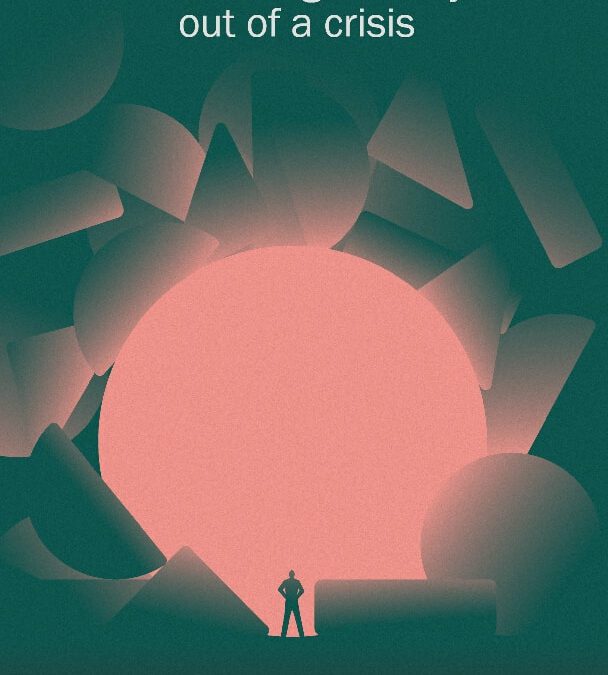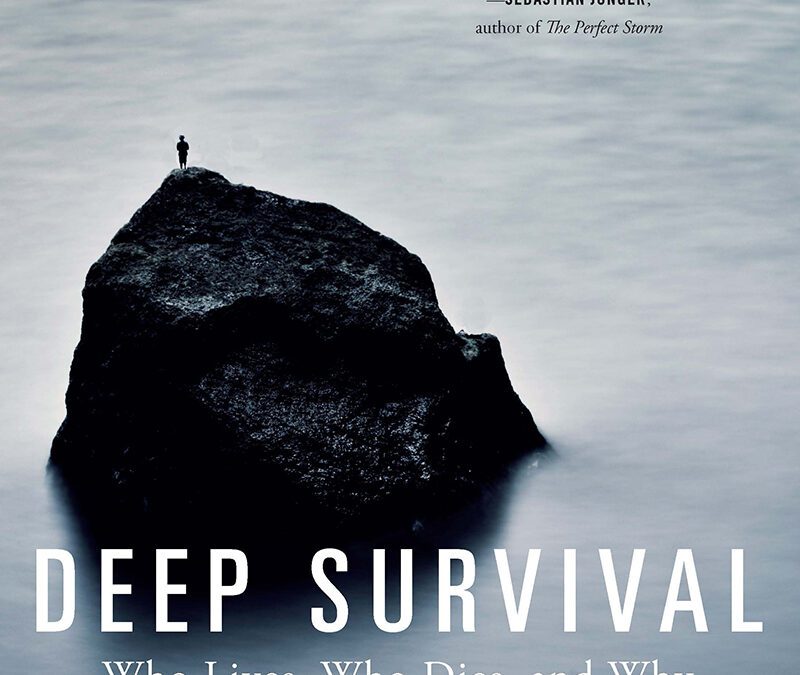by Barry Knight in Alliance Magazine…‘There are massive problems; climate, conflict, the economy are chief among them. Our international system for dealing collaboratively with any problem that crosses a border is out of date and needs to be rethought.’
The incredible, world-altering ‘Black Swan’ events that could upend life in 2025
From Politico Magazine…15 futurists, foreign policy analysts and other prognosticators provide some explosive potential scenarios for the new year.
Hope in the Face of the Polycrisis
by Jacob Bornstein & Mesa Sebree in Mediators Foundation…Historically, the leading causes of mass disruption across the world can be boiled down to the following threats: disease, economic mismanagement, environmental changes (natural and human-made), and violence (typically in relation to authoritarianism or fascism).
Implications of the polycrisis for resilience in humanitarian action
Cascade Institute presents Thomas Homer-Dixon…Implications of the polycrisis for resilience in humanitarian action. A Forum for European and Central Asia National Society Leaders.
A logic for the future: International relations in the age of turbulence
by Stephen Heintz in the Rockefellerl Brothers Fund…Many of the causes and consequences of present-day turmoil are transnational or even global in nature. These conflicts have no regard for borders and are not responsive to solutions devised and implemented by individual nation-states or the existing ecosystem of multilateral institutions.
A philanthropic theory of systems transformation for advancing equity in the polycrisis
by Michael Quinn Patton & Ruth Richardson in The Foundation Review…Intervening to mitigate and reverse the effects of the polycrisis challenges change agents, program designers, foundations, and evaluators to move beyond traditional
project-level thinking and autonomous foundation grantmaking to engage in
collaborative, principles-driven systems transformation.
More in this category

Rising to the occasion: Practical hope in a global polycrisis
In the New School at Commonweal video, Host Michael Lerner joins Commonweal board member Katherine Fulton in conversation with Graham Leicester, who has pioneered new ways to navigate and even thrive in this complex era.
A year in crises
by Tim Sahay in Phenomenal World…https://www.phenomenalworld.org/analysis/a-year-in-crises.

The terrible twenties? The assholocene? What to call our chaotic era
by Kyle Chayka in The New Yorker…There is something paradoxical about pinning a name on an age characterized by extreme uncertainty. But that hasn’t stopped people from trying.
Nate Hagen’s end of year look at 2024
by Eric Lee in Medicum.com….So I’m not going to apologize that the following short reflection is is on the dark side. I’m trying to describe what ’24 may look like. And there’s a lot of things that are converging.
Why so much is going wrong at the same time
By Thomas Homer-Dixon on The Cascade Institute…Most obviously, given that Earth’s worsening energy imbalance seems to be emerging as the single most powerful driver of crises across multiple ecological, economic, and social systems, humanity needs to cut greenhouse gas emissions to near zero as fast as possible. Realistically, though, we won’t cut them deeply enough soon enough to keep the imbalance from having devastating impacts, not least on the world’s food supply.

Beneath the polycrisis is the singular dilemma of humanity called capitalism: the thirty-seventh newsletter (2023)
by Vijay in Tricontinental….Dilemmas of humanity abound. There is little need to look at statistical data to know that we are in a spiral of crises, from the environmental and climate crisis to the crises of poverty and hunger.

Spaces for Growth: Learning our Way out of a Crisis
By Graham Leicester and Maureen O'Hara In normal times we tend to go about our lives oblivious to the structures, institutions, processes and shared values that shape our behaviours. In powerful times like ours, deep structures of love, power and justice are brought...

Polycrisis: Prompts for an emerging worldview
Taking the realms of business, finance and economic history by storm, polycrisis captures the complexity of an increasingly uncertain world in a state of flux and transition. Proponents of the polycrisis model, such as prominent economic historian and Financial Times...
We are witnessing the first stages of civilization’s collapse
Will our own elites perform any better than the rulers of Chaco Canyon, the Mayan heartland, and Viking Greenland? In his 2005 bestseller Collapse: How Societies Choose to Fail or Succeed, geographer Jared Diamond focused on past civilizations that confronted severe...
An introduction to the Metacrisis
An introduction to the Metacrisis by Daniel Schmachtenberger, founding member of The Consilience Project. Moderated by Niklas Adalberth, founder of Norrsken Foundation. Recorded live during Stockholm Impact/Week 2023. https://www.youtube.com/watch?v=4kBoLVvoqVY

Deep Survival: Who lives, who dies, and why
Laurence Gonzales’s bestselling Deep Survival has helped save lives from the deepest wildernesses, just as it has improved readers’ everyday lives. Its mix of adventure narrative, survival science, and practical advice has inspired everyone from business leaders to military officers, educators, and psychiatric professionals on how to take control of stress, learn to assess risk, and make better decisions under pressure.
The world’s population may peak in your lifetime. What happens next?
The global human population has been climbing for the past two centuries. But what is normal for all of us alive today — growing up while the world is growing rapidly — may be a blip in human history.
Conditions on Earth may be moving outside the ‘safe operating space’ for humanity, according to dozens of scientists
Human activities have breached safe levels for six of these boundaries and are pushing the world outside a “safe operating space” for humanity, according to the report, published on Wednesday in the journal Science Advances.
Ancient flood myths were a warning: heed the power of water
While the world must continue to adapt to worsening heat, increasingly intense wildfires, the acidification and warming of the oceans, and other climate threats, this year’s flooding is a wake-up call to focus on water.
Prefixing the world
by Jonathan Rowson in Perspectiva…The metacrisis is the historically specific threat to truth, beauty, and goodness caused by our persistent misunderstanding, misvaluing, and misappropriating of reality. The metacrisis is the crisis within and between all the world’s major crises, a root cause that is at once singular and plural, a multi-faceted delusion arising from the spiritual and material exhaustion of modernity that permeates the world’s interrelated challenges and manifests institutionally and culturally to the detriment of life on earth.



